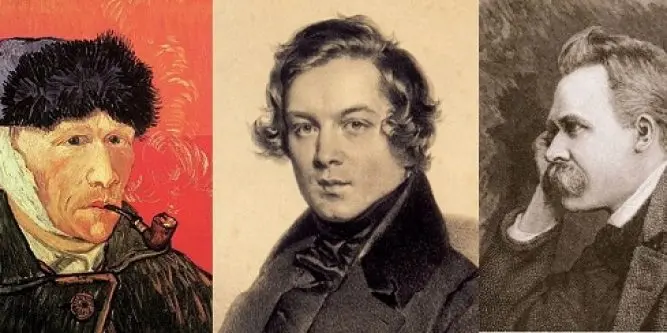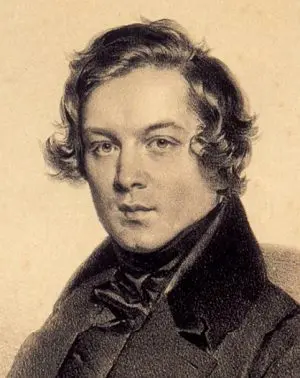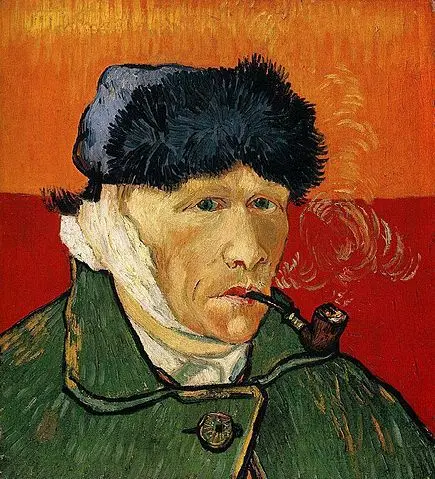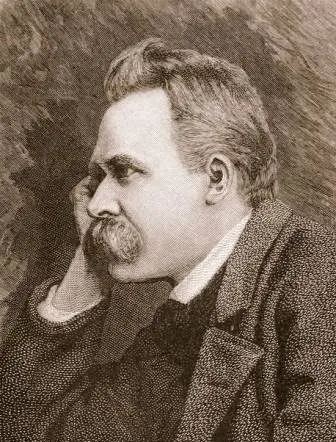
😉 Greetings to my readers! Gentlemen, studying the life path of some geniuses, sooner or later you begin to think: were they in their right mind? Does genius and madness have a border, or do they always coexist?
Madness has always been perceived as a manifestation of the dark side of the human psyche. No wonder the words mania in Greek, navi and mesugan in Hebrew, and nigarata in Sanskrit both mean madness and prophecy.
The Old Russian word “blessed” was also used to denote madness and literally means a person imbued with joy, upon whom God’s grace descended.
The book by Cesare Lombroso
The first studies of madness belong to Aristotle, Plato, Democritus. In their works, they examined the relationship between mental illness and talents.
One of the most fundamental and truly interesting works is, published in 1863, the book “Genius and Madness” by the Italian psychiatrist and criminologist Cesare Lombroso.
In it, the author made diagnoses in absentia to the great representatives of humanity. There is a statement that often the information used by the scientist was unreliable, some facts were chosen by him biasedly. But the work “Genius and Madness” has combined a large amount of biographical information about great people.
In particular, Lombroso says that geniuses and the mentally ill have a lot in common. It:
- excessive sensitivity;
- high spirits, which are replaced by apathy;
- the originality of beautiful works and a penchant for discovery;
- distraction;
- drug and alcohol abuse;
- vanity.
Among the geniuses there are madmen, among the madmen there are geniuses, but there are a large number of genius people, according to Lombroso, who do not have mental disorders.
Mad geniuses
Meanwhile, the facts show that many outstanding people really suffered from psychosis. Robert Schumann fell ill at the age of 46. The composer said that Mendelssohn and Beethoven personally dictate new works to him. It all ended with the fact that he committed suicide in a mental hospital.

Robert Schumann 1810-1856
Today, such symptoms suggest the presence of paranoid schizophrenia. A similar diagnosis could have been included in Jean-Jacques Rousseau’s medical record. The philosopher-educator believed that all people in the world, as well as all the forces of nature, were opposed to him.
Paranoid ideas were also characteristic of Mozart: he constantly believed that they wanted to poison him. The philosopher Nietzsche and the artist Mikhail Vrubel ended their days in a psychiatric hospital.
The Russian writer Fyodor Dostoevsky suffered from epilepsy. Leo Tolstoy was plagued by hysterical fits. Nikolai Gogol was diagnosed with schizophrenia, which resulted in the death of the writer. The last days of his life, he deliberately refused to eat and died of exhaustion.

Vincent Van Gogh 1853-1890
Painter Vincent Van Gogh, philosopher Immanuel Kant, writer Ernest Hemingway, and this list is far from complete.
Celebrity diseases
In Russia, in 1925, an interesting series of publications “Clinical archive of genius and giftedness” was published. The book was published under the editorship of V. Segalin. The authors of these publications tried to prove the connection between genius and mental illness. They studied the biographies of famous people, their children and relatives.

Friedrich Nietzsche 1844-1900
The researchers found a trend. Many geniuses showed signs of giftedness on one branch of the family tree (often after a generation), and signs of “hereditary psychosis” on the other.
Dr. Segalin gave his explanation of this pattern. Possible giftedness under normal conditions is “inhibited by normal consciousness.” But if a person has a mental anomaly, then it releases creativity, reveals talent, and removes inhibition.
It is significant that painful heredity often found itself among the brothers or sisters of world geniuses. In particular, composer Robert Schumann, philosopher Hegel, philosopher and encyclopedist Denis Diderot. Each of them had a sister who had mental disorders.
The writers Victor Hugo, Leo Tolstoy, the artist Mikhail Vrubel, the philosopher Ludwig Feuerbach had a mentally ill brother.
Psychopathologies have been found in the children of many geniuses:
- Johann Sebastian Bach;
- Felix Mendelssohn;
- Robert Schumann;
- Johann Wolfgang von Goethe;
- Mark Twain.
Friends, I will be glad to see your additions to the article “Genius and Madness: Mad Geniuses and Heredity”. 😉 Share information in social networks.









